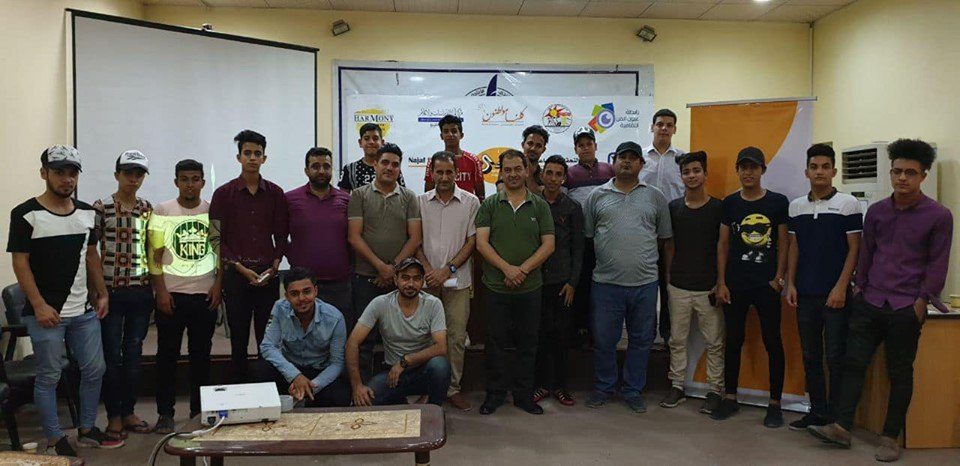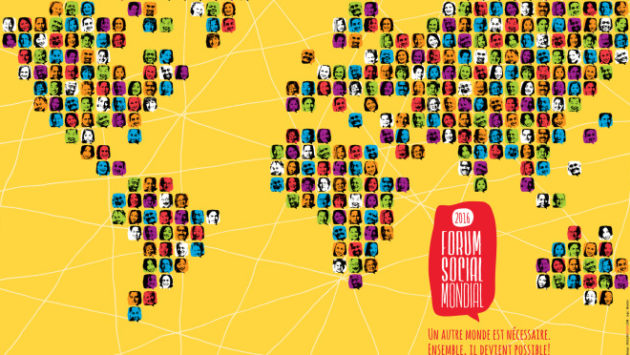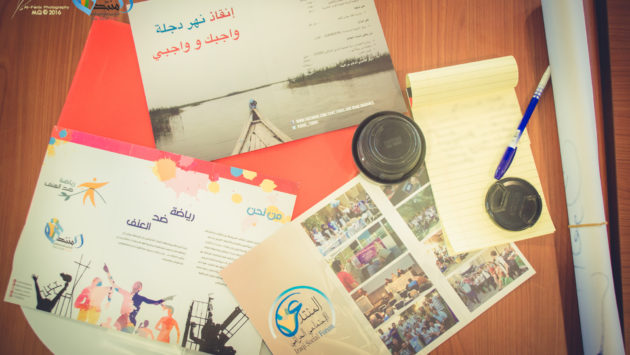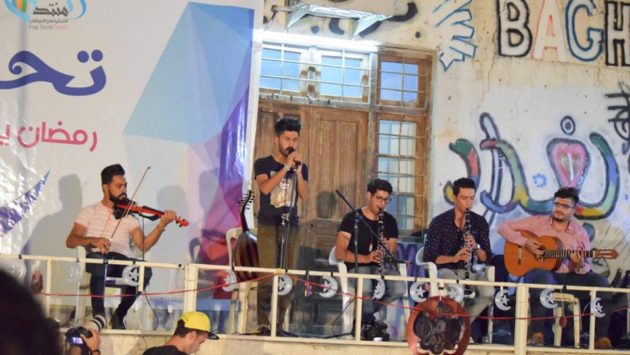Najaf Forum Campaign To Confront The Rhetoric Of Extremism
In cooperation with the Najaf Social Forum and the campaign launched by the Forum “Countering the Speeches of Extremism” at the beginning of last June, the People’s Committee for the Protection of Antiquities and Heritage in Iraq held a dialogue session entitled German Institute of Archeology in Iraq, Archaeological cooperation in Najaf and other places. German archaeologist Margaret van Ass discussed the subject of antiquities in the presence of a number of Italian researchers, Najaf intellectuals, young people and academics in the city of Najaf on June 28 at Al-Habboubi Hall.
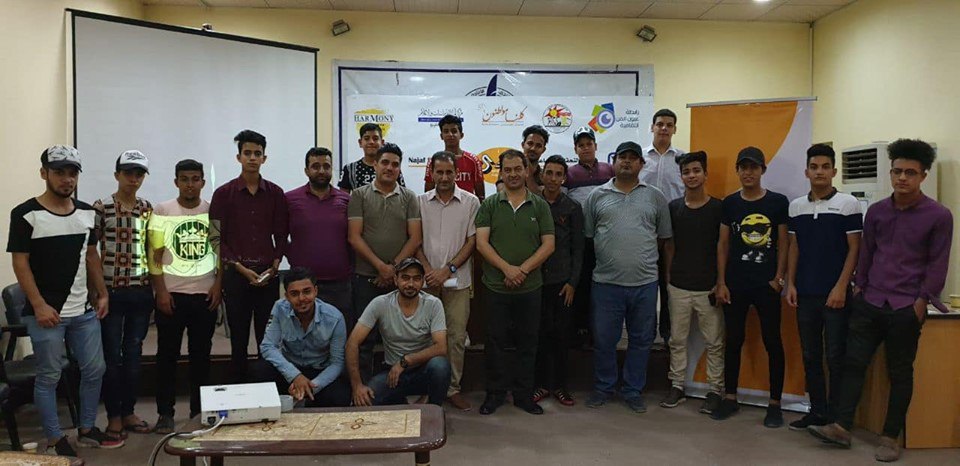
The first axis of the workshop included addressing the most important issues related to the monuments in the city of Najaf and its environs, including churches, Christian tombs and a number of Islamic monuments. Van Ass said: “I have been with a group of colleagues in the mission more than ten times and for many years, and we discovered many churches and monuments in the city of Najaf.”
The second axis discussed the recommendations made by the session to unite efforts in preserving the most revered Christian churches and their graves and a number of other Islamic monuments, reducing the rhetoric of extremism that led to neglect of this heritage of Iraqi civilization, and the removal of buildings that exacerbated these effects.
On the second day, the Najaf Social Forum held a training workshop within the campaign to confront the rhetoric of extremism with the participation of more than 30 trainees from various institutions and youth groups in the Al-Habboubi hall of preservation of literature and Writers Association in Najaf.
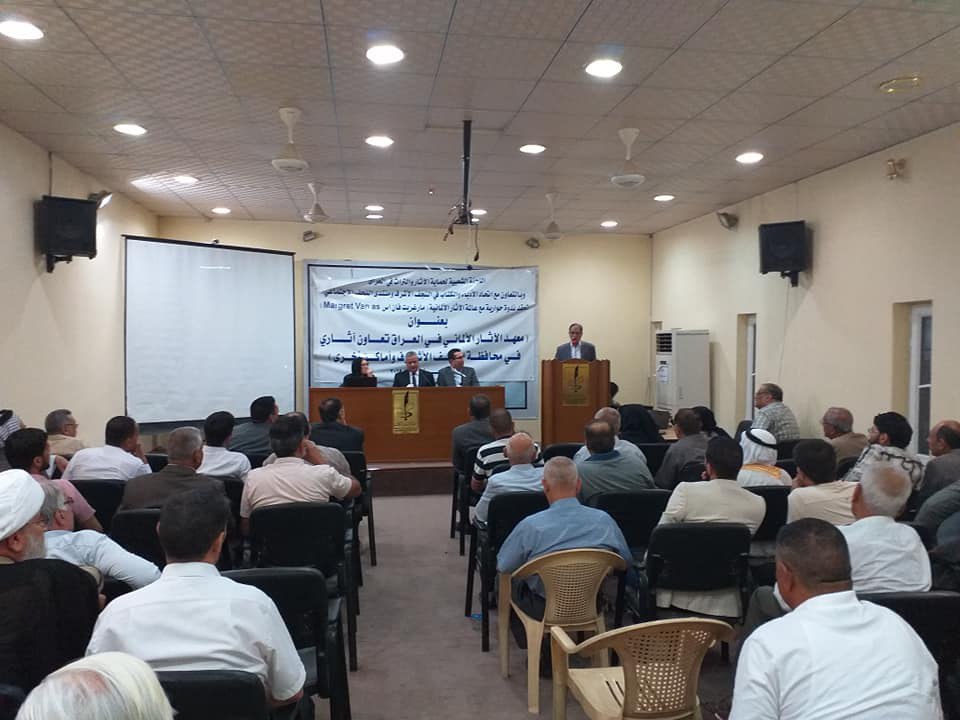
The workshop dealt with definitions of extremism, its types and causes, and how to confront it. The mechanism to confront extremism was presented with the active participation of the participants. The workshop also focused on the idea of the city as a religious city which attracts many tourists, and touched on the religious platform and its impact on the behavior of people, as well as ways to improve clarity of thinking.
The participants were then divided into 3 working groups, each of which came out with a set of recommendations that can be summarized as follows:
– Permanent participation in events that work on humanitarian discourse away from intolerance.
– The imposition of laws and regulations in a way that promotes freedom of thought and creativity in society and removes obstacles to freedom of opinion, and to address attempts to impose intellectual custody or religious control.
– To expand the publication of books and books that support rationality and enlightenment, and disseminate Renaissance thought, and fight superstition and extremism and open the doors of creative interaction with the achievements of human culture in the natural and human sciences.
– Encourage the artistic movement to create high quality artwork that aims to promote the culture of the youth and develop talents, refined educational institutions and cultural systems, and encourage the dissemination of arts and the discovery of creative talents.
– Benefiting from electronic publishing, and launching social networking sites among young people that aim to curb extremism, culture of violence, and promote freedom of thought and the dissemination of fine arts by all means.
the Najaf Social Forum works in cooperation with the Information Center for Research and Development, the Iraqi Civil Society Solidarity Initiative and the Italian Organization Un Ponte Per within the space of the Iraqi Social Forum and with the support of the Swiss Fay Foundation.
Fatima Al Wardi
Iraqi Social Forum

